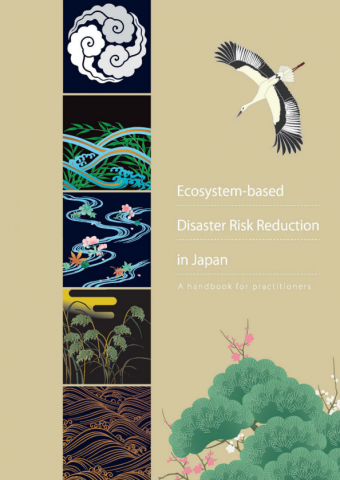Awareness material
Eco-system Based Disaster Risk Reduction in Japan: a Handbook for Practitioners


This handbook introduces some approaches to disaster risk management based on a symbiotic relationship between nature and humanity, and compiles basic information on practical matters for reference.
It highlights some of the benefits and advantages of Eco-system based Disaster Risk Reduction (Eco-DRR), the traditional and new ecosystem-based approaches as well as the key points in adopting them.
The handbook also presents referential case studies, and the administrative policy in Japan for Eco-DRR.
Japanese Ministry of Environment, 2016
Online Report
http://www.preventionweb.net/files/48400_ecodrr.pdf
